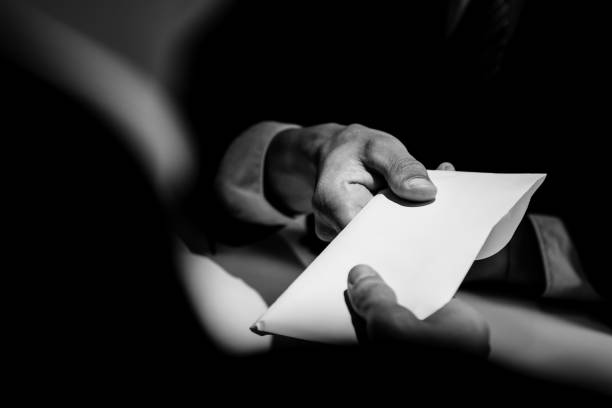Reinforcing the Standard of Proof: Supreme Court Acquits Revenue Inspector in Corruption Case Due to Insufficient Evidence

Introduction
In a landmark decision dated May 9, 2025, the Supreme Court of India in Paritala Sudhakar v. State of Telangana [SLP(Criminal) No. 6066 of 2024] acquitted the Appellant, Paritala Sudhakar, a former Revenue Inspector, of bribery charges under the Prevention of Corruption Act, 1988. Overturning the convictions upheld by the Trial court and the High Court, the Supreme Court emphasized the necessity of proving guilt beyond a reasonable doubt in corruption cases.
Background of the Case
Paritala Sudhakar, the Appellant, served as a Revenue Inspector in the Mandal Revenue Office (MRO) of Gundala Mandal, Nalgonda District, in the erstwhile State of Andhra Pradesh from October 12, 2001, to August 20, 2003. On August 6, 2003, the Complainant (PW1) submitted an application to the MRO seeking compensation for trees lost due to drought. The application was assigned to Sudhakar for inquiry. It was alleged, Sudhakar demanded a bribe of Rs. 2,000 from the Complainant to conduct the said inquiry and prepare a report. After negotiations, the Appellant reportedly instructed the Complainant to bring the money to his residence in Mothukur Village on August 11, 2003.
Aggrieved, the Complainant reported the demand to the Anti-Corruption Bureau (ACB) on August 8, 2003, leading to a trap operation on August 11. Although Sudhakar’s house was locked, the trap party located him at the MRO and later followed him to Ambala Village, where he met PW1 i.e. the Complainant. After inspecting his garden, Sudhakar allegedly instructed the Complainant to place the bribe in a ‘rexine’ bag attached to his motorcycle’s petrol tank. The trap party apprehended Sudhakar, recovered the money, and charged him under the Prevention of Corruption Act.
On January 29, 2008, the Trial Court convicted Sudhakar under Sections 7 and 13(1)(d) read with 13(2) of the Act, sentencing him to one year of rigorous imprisonment and a Rs. 1,000 fine for each offense. The High Court of Telangana upheld this conviction on March 6, 2024, prompting Sudhakar’s appeal to the Supreme Court.
Provisions Involved
The case hinges on the following provisions of the Prevention of Corruption Act, 1988:
- Section 7: Penalizes a public servant for accepting or attempting to obtain gratification beyond legal remuneration as a motive or reward for performing or abstaining from an official act.
- Section 13(1)(d): Defines criminal misconduct by a public servant, including obtaining pecuniary advantage through corrupt or illegal means or abuse of position.
- Section 13(2): Specifies punishment for criminal misconduct, including imprisonment and fines.
- Section 20: Establishes a presumption that if a public servant accepts gratification, it is deemed a motive or reward under Section 7 unless proven otherwise.
These provisions formed the legal basis for the Prosecution’s case against Sudhakar.
Issues/Points of Determination
The Supreme Court framed the central issue as:
- Whether the Prosecution proved beyond a reasonable doubt that the Appellant demanded and accepted a bribe of Rs. 2,000 from the Complainant.
This involved assessing the adequacy and reliability of the evidence presented by the Prosecution.
Arguments by the Appellant
The defence raised by the Appellant’s counsel were as follows:
- Non-Compliance with Trap Case Standards: The Appellant argued that the Prosecution failed to meet the Triple Test for trap cases, which is as follows:
(i) Prior verification of the demand,
(ii) Use of a shadow witness, and a
(iii) Successful pH test.
The failure to adhere to these tests casted doubt on the trap’s reliability.
- Inconsistent Testimonies: The Appellant pointed to contradictions in the Complainant’s statements about whether he was present when the money was placed in the bag, and pointed out that Complainant’s wife (DW1) denied knowledge of any bribe demand.
- Prior Animosity: The Appellant suggested that a previous altercation between him and the Complainant motivated him to frame the Appellant, undermining the Prosecution’s narrative.
- Lack of Direct Evidence: The absence of independent witnesses to the demand and the inconclusive nature of the money’s recovery were highlighted as fatal flaws.
Arguments by the Respondent
The Prosecution countered with:
- Testimony of PW2: PW2, an independent witness, overheard the Appellant asking the Complainant about the bribe, supporting the demand allegation despite not being inside the room.
- Recovery of Bribe Money: The recovery of Rs. 2,000 from the Appellant’s motorcycle ‘rexine’ bag, combined with the Complainant’s testimony, established acceptance.
- Section 20 Presumption: The Prosecution invoked the statutory presumption under Section 20, arguing that the recovery shifted the burden upon the Appellant to disprove corrupt intent.
- No Motive for Falsehood: They dismissed the animosity claim, asserting that any prior altercation reinforced the Appellant’s corrupt motive rather than PW1’s malice.
Decision of the Court
The Supreme Court allowed the appeal, acquiting the Appellant, and setting aside the convictions and sentences. The Court further directed the refund of any fines deposited within four weeks, extending the benefit of doubt to the Appellant.
Grounds for the Decision
The Court’s reasoning included:
- Material Contradictions: The Complainant’s inconsistent testimony about Appellant’s presence during the money placement, coupled with DW1’s (wife of Complainant) denial of a demand, undermined the Prosecution’s case.
- Unreliable Trap Evidence: The trap party, positioned 20 yards away, should have observed the Complainant placing the money if they saw his signal, yet no such observation was recorded. The negative pH test on the Appellant’s hands further weakened the acceptance claim.
- Failure to Prove Demand and Acceptance: The lack of independent corroboration and the unclear circumstances of the money’s placement meant the Prosecution did not establish guilt beyond reasonable doubt.
- Inapplicability of Section 20: Without conclusive proof of demand, the presumption under Section 20 could not apply, The court referred to the precedent set in Om Parkash v. State of Haryana (2006) 2 SCC 250.
- Benefit of Doubt: The Court while emphasising on the corroborating value of evidence referred to the precedent established in Krishnegowda v. State of Karnataka (2017) 13 SCC 98 wherein it was held that “minor variations and contradictions in the evidence of the eyewitnesses will not tilt the benefit of doubt in favour of the accused but when the contradictions in the evidence of the Prosecution witnesses proves to be fatal to the Prosecution case then those contradictions go to the root of the matter and in such cases the accused gets the benefit of doubt.” In the present matter as the Prosecution could not prove the allegations beyond reasonable doubt, it necessitated an acquittal.
Conclusion
The Supreme Court’s ruling reaffirms the high evidentiary threshold in corruption cases, prioritizing the presumption of innocence when evidence is riddled with doubt. By acquitting the Appellant, Paritala Sudhakar, the Court underscored that convictions cannot rest on shaky foundations, safeguarding both justice and individual liberty.
Saharsh Singh,
Intern,
IV Year, National Law Institute University, Bhopal
Please log on to our YouTube channel, The Indian Lawyer Legal Tips, to learn about various aspects of the law. Our latest video, titled “Legal Aspects of War | How International Law Governs Armed Conflicts” Legal Tips can be viewed at the link below:
https://www.youtube.com/watch?v=GIem2EVGjOI





































Leave a Reply